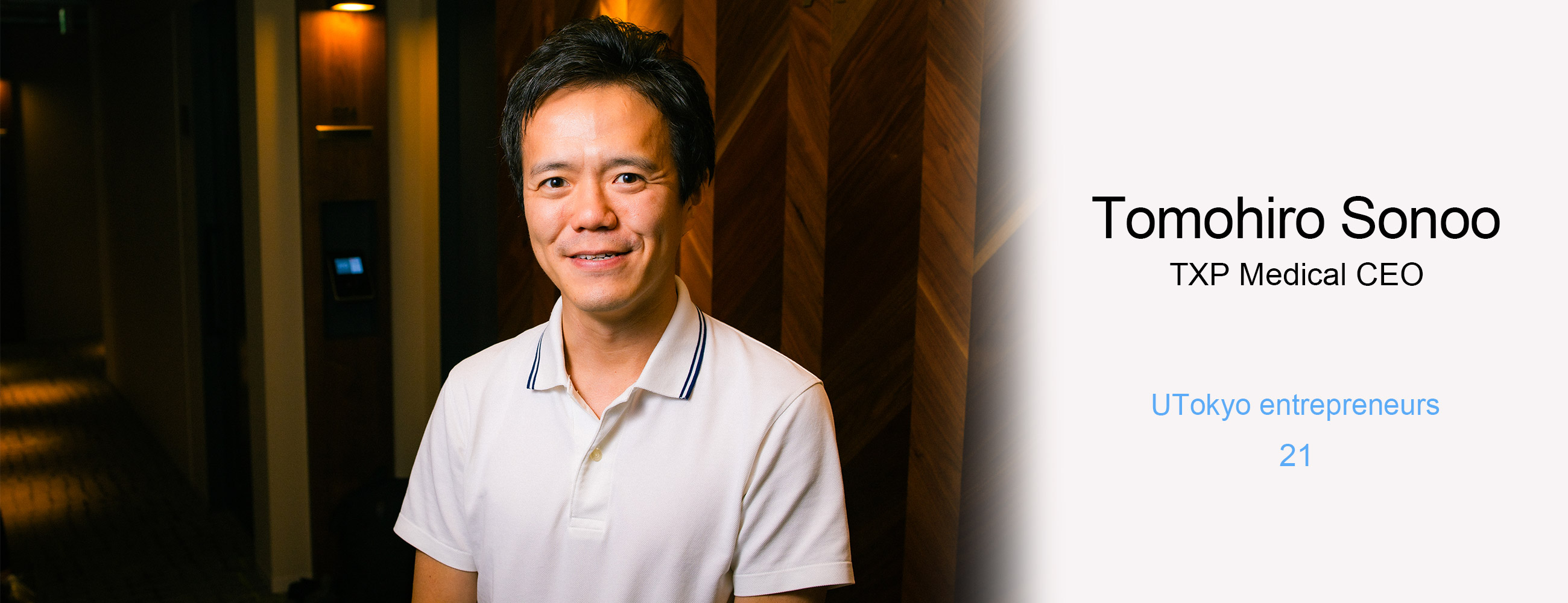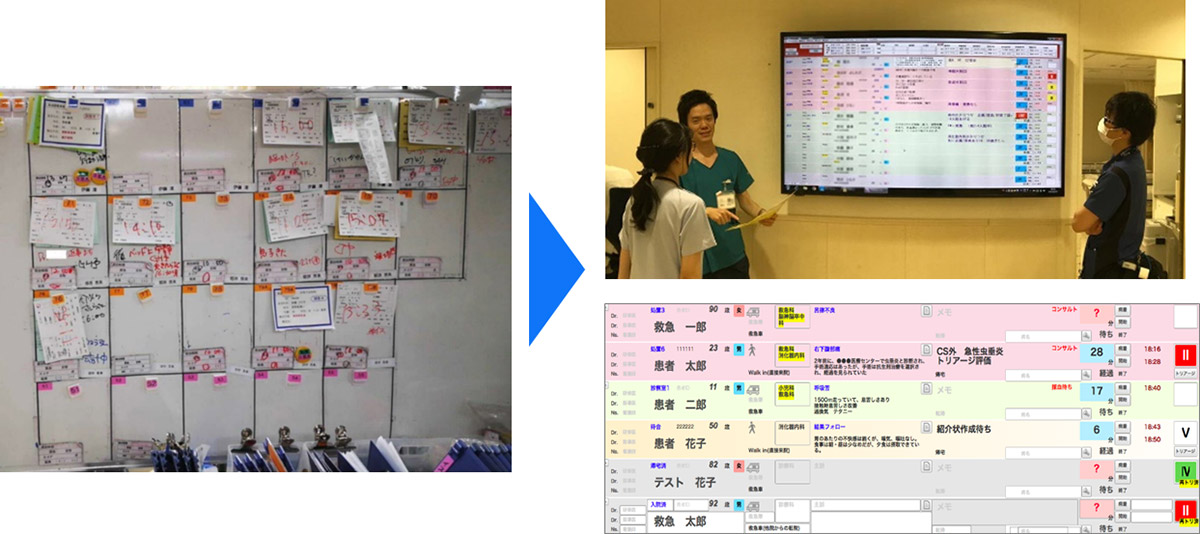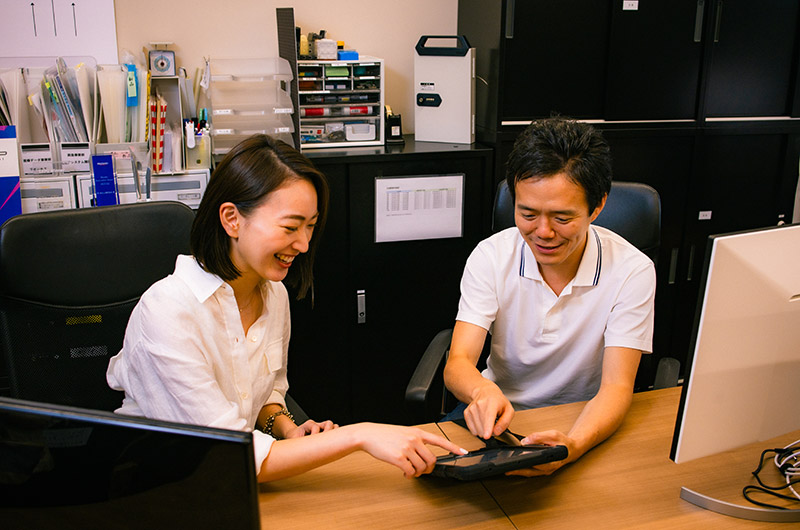Doctor brings life-saving digital transformation to emergency medicine Entrepreneurs 21

This series introduces entrepreneurs who have received startup support from UTokyo programs or who have utilized university research. UTokyo’s support aims to expand Japan’s innovation ecosystem.

More than a decade ago, when Tomohiro Sonoo was a resident doctor aspiring to become an acute care physician, he was astounded by the inefficiencies in his emergency outpatient unit’s management of medical data. Most patients transported to the University of Tokyo Hospital for acute care were first-time visitors, meaning there was no access to their medical records outside the hospital. The urgent nature of acute care, where every moment is crucial, also leaves little time to gather and accumulate medical data for future reference.
Driven by a strong sense of mission to improve the inefficient management of emergency care data, Sonoo founded TXP Medical Co., Ltd. in August 2017. Some 70 major hospitals nationwide currently use the company's products to integrate medical data on acute care cases and for database development. Sonoo is determined to expand the use of these products to more hospitals and establish a nationwide medical data platform, while building a business model based on providing statistical analysis of data to pharmaceutical companies. To achieve these goals, Sonoo continues to see patients at an emergency ward on weekends to maintain a doctor’s perspective and to better understand the needs of emergency care units.
Limits of going it alone

After graduating from the UTokyo Faculty of Medicine in 2010 and becoming a senior resident a few years later, Sonoo found it puzzling that the university hospital did not have a database of past medical cases, even though it provided acute care to several dozen patients a day. Consequently, he decided to build a database of his own while carrying on with his clinical work. He taught himself information technology skills and started to create a customized database using specialized software.
His pursuit of developing an efficient database persisted even after he was transferred to Hitachi General Hospital in the city of Hitachi in Ibaraki Prefecture, northeast of Tokyo. Sonoo continued to accumulate data while treating patients in acute and intensive care units and conducting clinical research. However, he eventually confronted a harsh reality. “I would never be able to bring about change in global medical practices simply by presenting research results based on the accumulated data at academic conferences,” he recalls realizing at the time.
So Sonoo then traveled to the United States, where he toured hospitals and took part in short-term seminars. He learned that in the U.S., gathering data and building a database were the job of research assistants, allowing doctors to focus on practicing medicine. Such a database could be built thanks to the substantial research funding of millions of U.S. dollars — or equal to hundreds of millions of yen.
“I realized it was a completely different situation compared to Japan,” Sonoo said. “I needed to start by creating a small-scale database model with my own resources and then introduce it across Japan.” He set out to develop an acute care data system from scratch and began promoting it to hospitals.
However, he again encountered a significant obstacle. While many hospital doctors were enthusiastic about his prototype, they raised concerns regarding maintenance, privacy protection and compatibility with existing hospital system policies. It was at this point that he realized he had to establish a company of his own to achieve his goals.
Breaking ground for groundbreaking nationwide platform
When TXP Medical was launched, it resembled a sole proprietorship, primarily funded and operated by the chief executive officer himself. However, in 2018, the company reached a significant turning point. It became part of the Cabinet Office's Cross-ministerial Strategic Innovation Promotion Program to engage in the research and development of artificial intelligence-assisted diagnositics and treatment support systems. This was under the Innovative AI Hospital System project, which leverages artificial intelligence (AI), the internet of things (IoT) and big data technologies. Through this program, the company secured an annual research fund of 60 million yen for five consecutive years.
In July 2020, it raised 250 million yen from venture capital firm University of Tokyo Edge Capital Partners Co., Ltd. (UTEC), followed by 1.5 billion yen in funding from UTEC and major trading house Itochu Corp. in April 2022. As a result, the company was able to strengthen its management team and expand its staff to 65, as well as retain researchers and part-time advisers, including doctors.
TXP Medical’s signature products are NEXT Stage ER and NSER mobile. NEXT Stage ER is a department-specific system designed for the emergency outpatient units of major hospitals. This groundbreaking system not only records patient information, but also facilitates information-sharing among medical staff while accumulating crucial data for research. It offers various optional functions, including medical questionnaires for patient self-reporting, triaging, an application for rapid response vehicles carrying doctors to patients, and ICU operational support. The company's goal is to expand its adoption from the current 70 to the 200-300 major hospitals in Japan and establish a nationwide platform dedicated to acute care data.
NSER mobile, meanwhile, is a platform that enables paramedics to record patient information in real time using voice input and optical character reader (OCR) technology. This OCR technology can electronically convert images of printed or handwritten text in medical notebooks and other documents, even when paramedics have their hands full tending to a patient en route to the hospital. This product is now being used by around 20 municipalities that employ the product for a fee, including the city of Sapporo in Japan’s northern main island Hokkaido and Fujisawa in Kanagawa Prefecture, southwest of Tokyo.
Physician CEO dedicated to data for drug discovery
The company also places a strong emphasis on supporting pharmaceutical companies in their clinical trials and provides a service that analyzes real-world medical data encompassing information related to patient health status and the delivery of health care, routinely collected from various sources. Obtaining consent for clinical trials related to acute diseases, such as strokes and heart attacks, is challenging due to the limited time available, which makes it difficult to accumulate sufficient data concerning specific cases. NEXT Stage ER, however, has the capability to rapidly alert medical staff to potential candidates for clinical trials, enabling the staff to provide timely explanations and thereby increasing the chances of obtaining consent for patients to participate in these trials.
The early accumulation of essential clinical data can expedite the drug discovery process, potentially leading to the early development of medications that are effective in saving the lives of patients suffering from heart conditions and cerebrovascular diseases (related to the blood vessels supplying the brain), which are the second- and third-leading causes of death in Japan, respectively. Medical data gathered through NEXT Stage ER constitute real-world data, and the company offers services for analyzing statistical data derived from this data.
“Much of the medical data previously available relied on DPC (abbreviation for diagnosis procedure combination, a classification system used for reimbursement of acute inpatient care) and health insurance claims issued by medical institutions to insurers, making it challenging to fully understand the real conditions of patients or the strategies and issues faced by doctors,” Sonoo explained. “Thus, providing more valuable and in-depth medical data that were previously inaccessible will be the foundation of our business model.” With a focus on the global market, the company has already initiated pilot projects in Indonesia and Malaysia.
Sonoo wears a couple hats, continuing to work as a doctor at an emergency outpatient unit on weekends, while dedicating himself to the role of CEO during the week. By actively engaging in acute care, he places a high priority on gathering insights from his own experience as an acute care physician. “This allows the company to swiftly develop products that align with the specific requirements of acute care units,” he said.
Sonoo also embraces AI technologies — including large language models (LLMs) such as GPT, a generative AI developed by U.S. artificial intelligence company OpenAI — for their promising applications in his company's products. “Our goal is to create systems that support acute care, ensuring that the best possible care is provided to patients in the acute phase,” Sonoo stated. “I aspire to make such a standard not only in Japan but also globally, so that people can access high-quality acute care anywhere in the world.”

TXP Medical Co., Ltd.
Launched in 2017 by acute care physician Tomohiro Sonoo. In August 2020, the startup was transitioned to Entrepreneur Lab, an incubation facility operated by UTokyo’s Division of University Corporate Relations, before relocating to its current head office in nearby Chiyoda ward in Tokyo. In addition to medical data systems NEXT Stage ER and NSER mobile, the company has developed NEXT Stage ICU for recording information about ICU patients and NEXT Stage Oncology, a database for cancer treatments. Under its mission, “Save lives with medical data,” the company’s primary focus is to alleviate the burden on medical staff through digital transformation, while simultaneously establishing a comprehensive medical database to enhance health care services and streamline drug discovery processes. Its strategic capital alliance with Itochu Corp., whose subsidiaries include A2 Healthcare Corp., a leading provider of drug development services, promises synergistic effects in the future. In the photo, Sonoo, right, and a staff member discuss one of the company's products.
Date of interview: Sept. 14, 2023
Interview/Text: Yumiko Mori
Top and bottom photos: Public Relations Group






